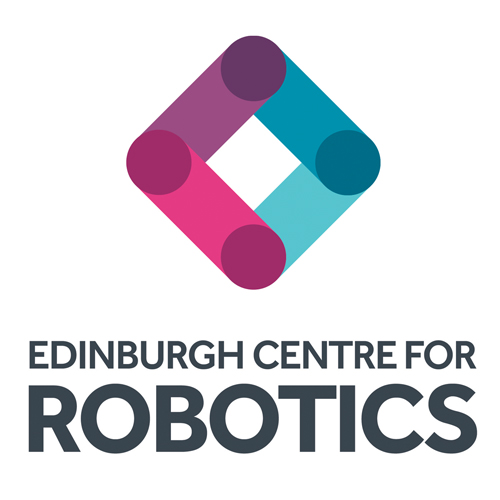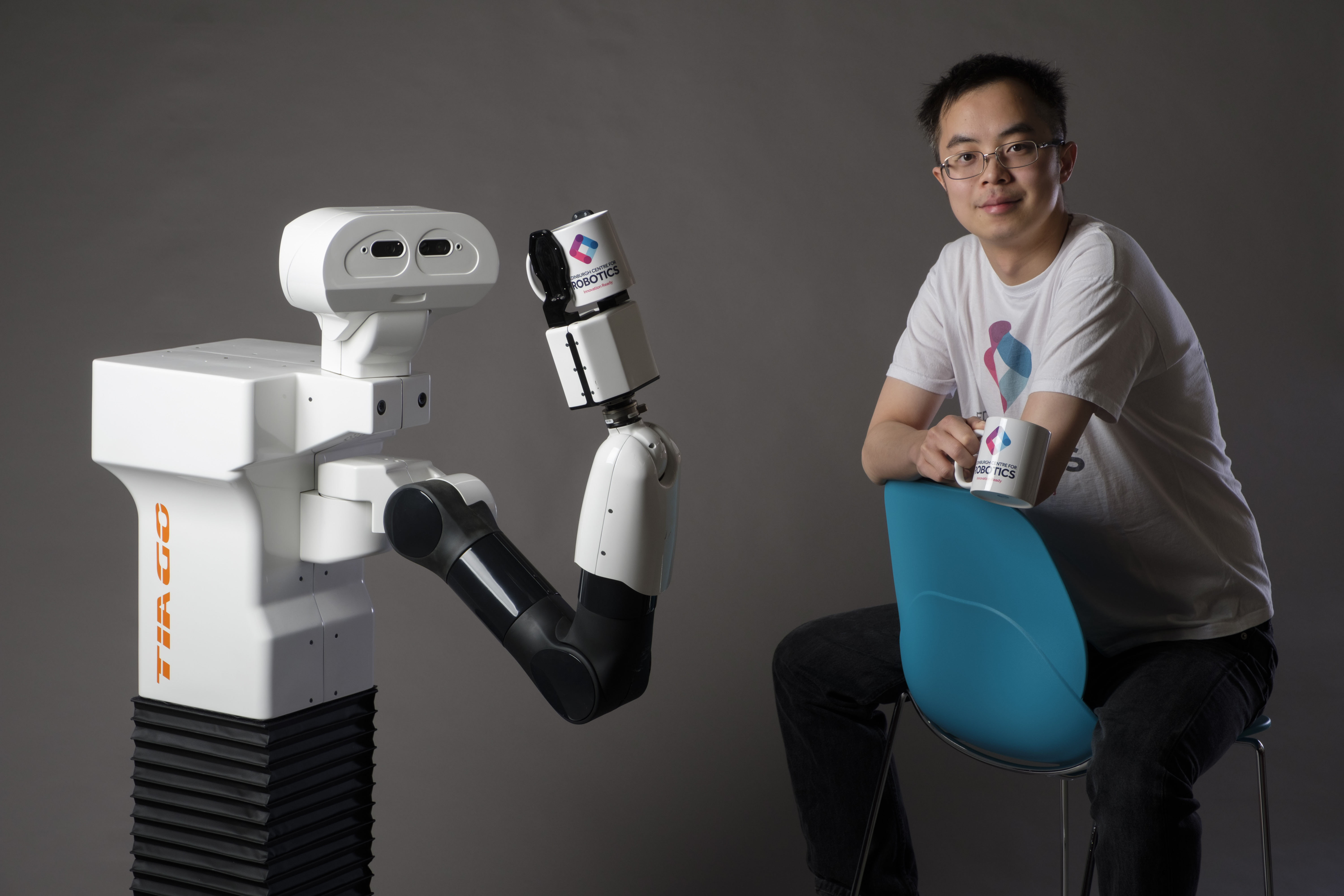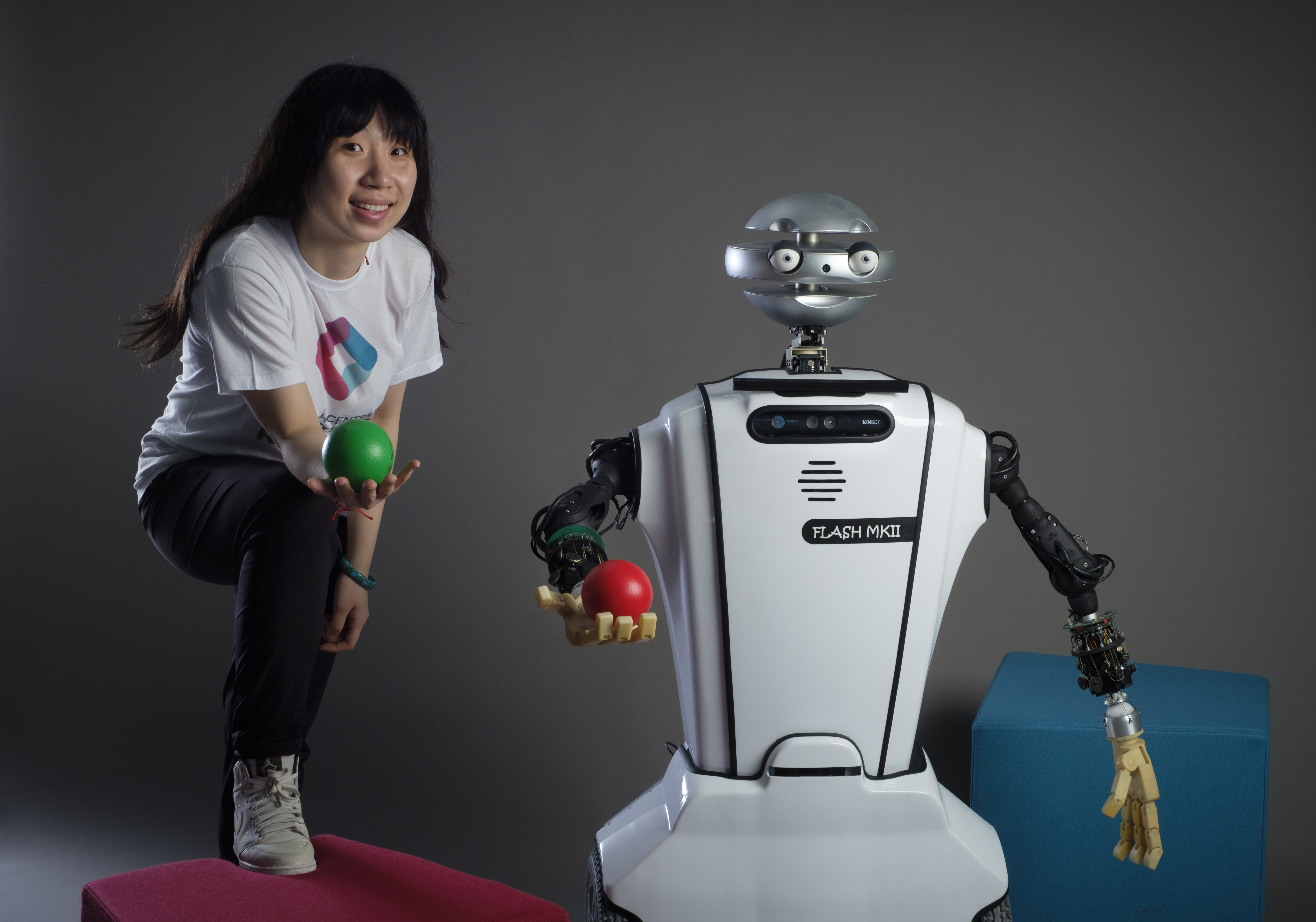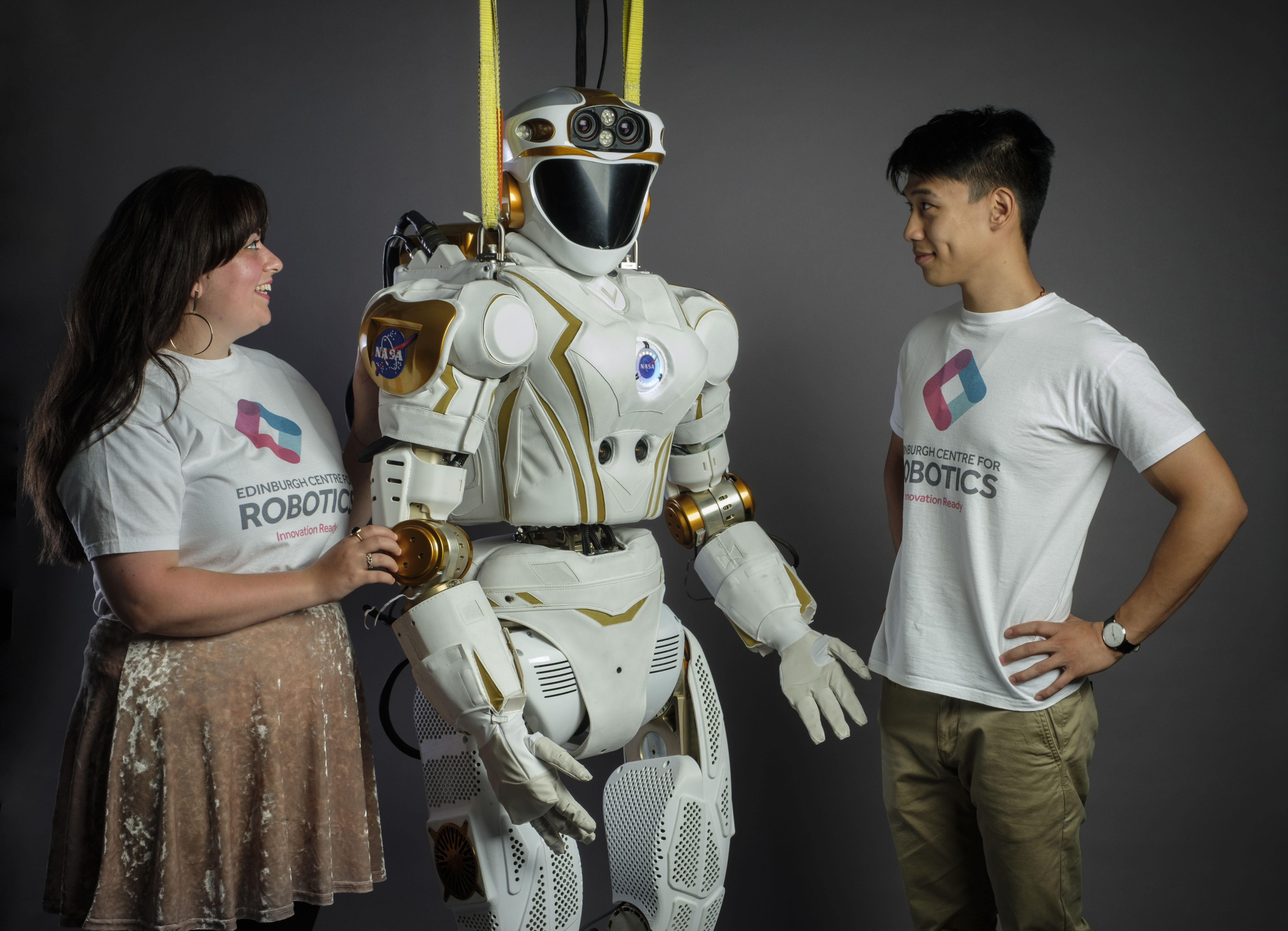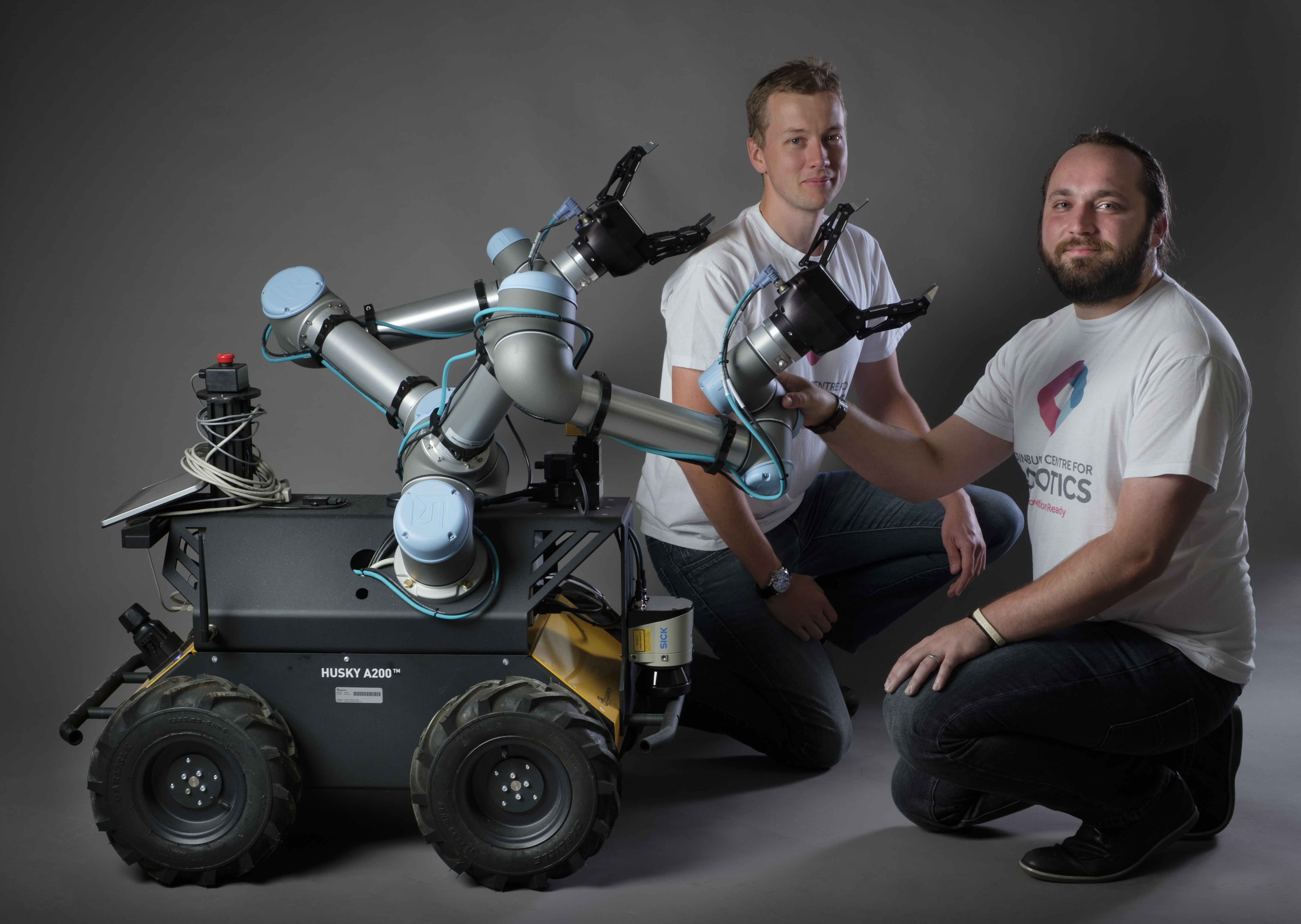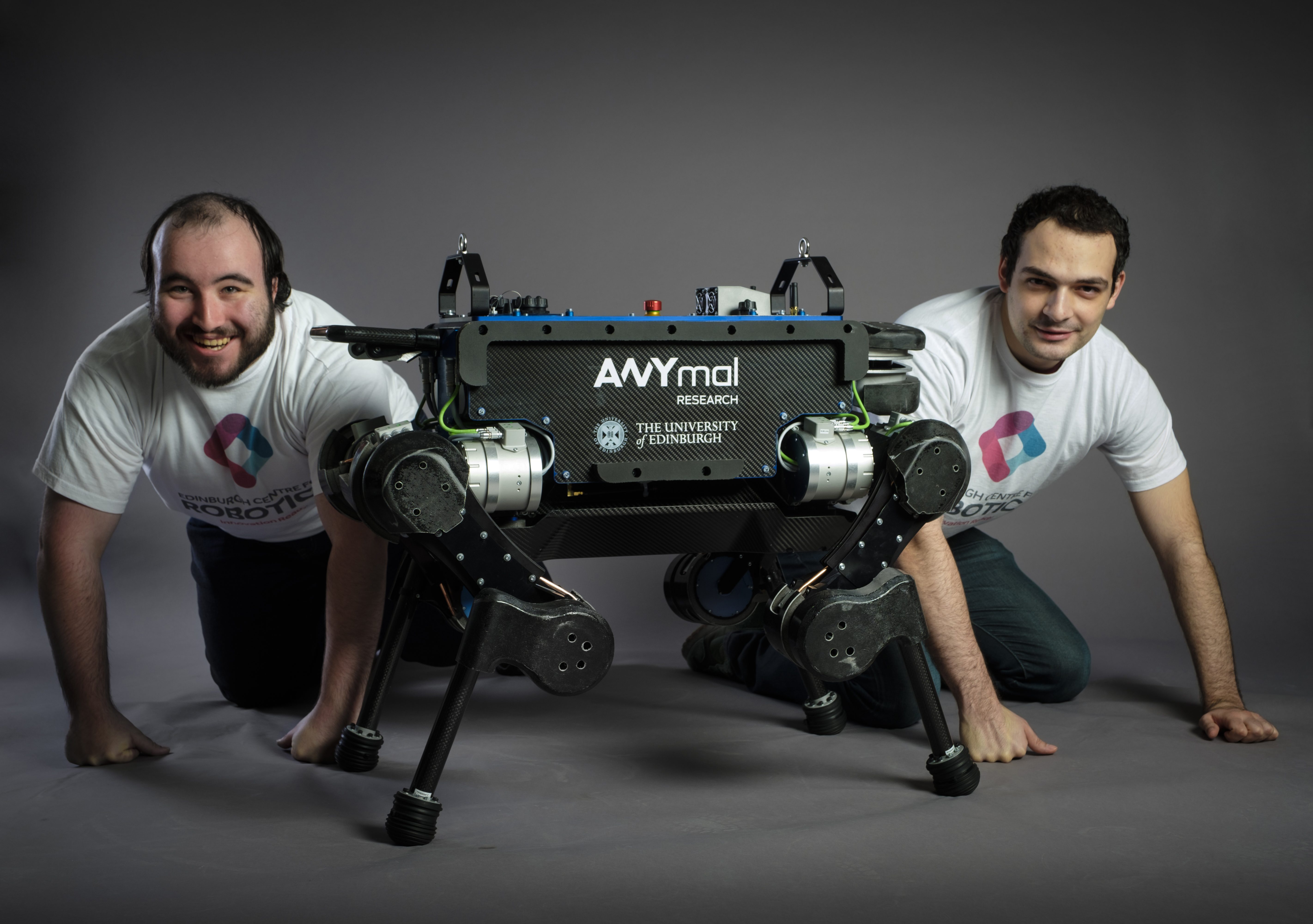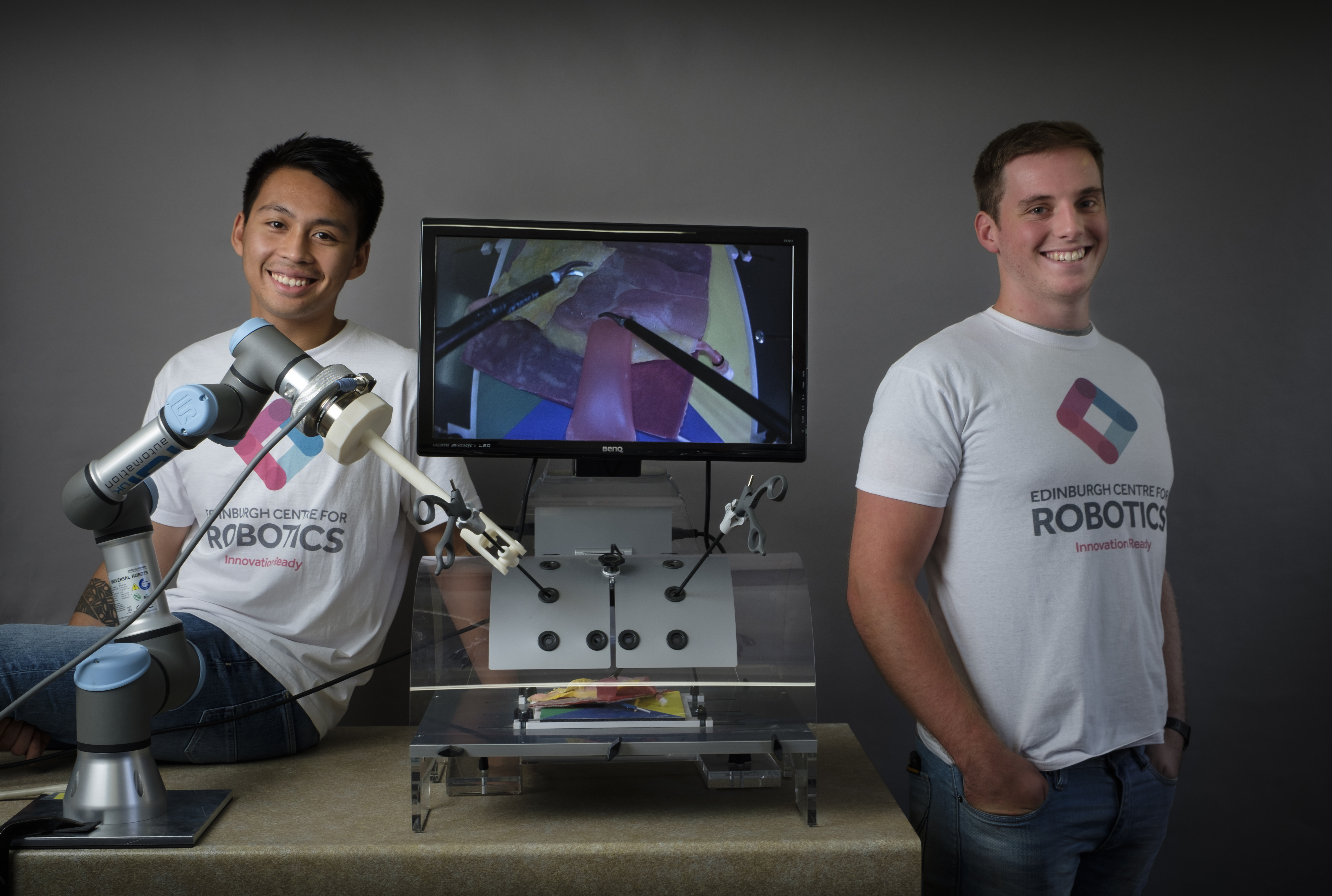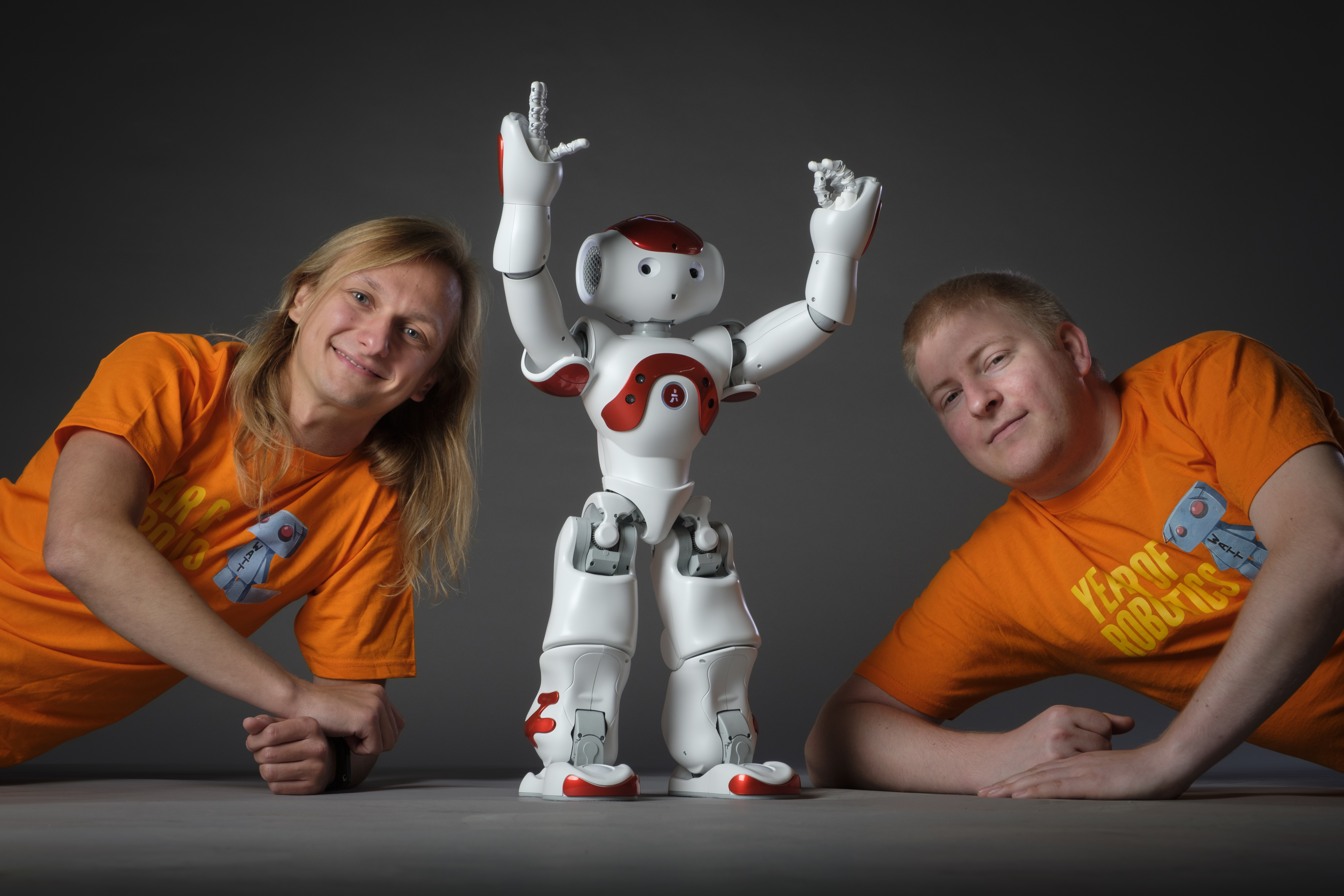EPSRC Centre for Doctoral Training in Robotics and Autonomous Systems (CDT-RAS1)
This page contains information about the EPSRC Centre for Doctoral Training in Robotics and Autonomous Systems (CDT-RAS1) which accepted students from 2014 to 2019. CDT-RAS1 is no longer accepting applications.
The Edinburgh Centre for Robotics offers a PhD training programme in the EPSRC Centre for Doctoral Training (CDT) in Robotics and Autonomous Systems. Its goal is to train innovation-ready robotics researchers to be part of a multi-disciplinary enterprise, requiring sound knowledge of physics (kinematics, dynamics), engineering (control, signal processing, mechanical design), computer science (algorithms for perception, planning, decision making and intelligent behaviour, software engineering), as well as allied areas ranging from biology and biomechanics to cognitive psychology. Students specialise in one of these areas, gaining a deep understanding of technical aspects and theoretical foundations. Students also receive broad training across these fields to enable them to engage meaningfully with a wide cross-section of the robotics community.
Achieving impact with robotics also requires non-technical skills, for example an understanding of technology translation, creativity and entrepreneurial processes. These are an essential component of the CDT programme, captured in the CDT's training programme.
#Cauldron
Our bespoke #Cauldron training programme aims to extend the students’ academic enhancement in the interlinked areas of Scientific Cohesion, Research and Creativity Skills, Social and Societal Challenges, and Innovation. A particular feature of #Cauldron is the mixing of students from different years, and across laboratories which encourages cross-disciplinary idea generation. #Cauldron draws on the Vitae Researcher Development framework, implementing the Research Concordat of the UK Research Councils informed by the recommendations of the Roberts' Review “Set for Success”. #Cauldron comprises cohort-wide and elective activities including guest speakers, seminars, skills sessions, tours, retreats and informal discussions. Students select a training portfolio following a development needs analysis to achieve specific training outcomes aligned with their interests.
Year 1
Year 1 will involve taught courses covering the diverse areas mentioned above, supplemented by practical experience in the form of small projects. Students will select courses (180 credits total) including the MRes project. This programme includes:
- A (mandatory) seminar course entitled Autonomous Systems Research (30 credits), which is taught at Heriot-Watt University and which will introduces students to current research issues in many areas of robotics and related fields including the activities of some of our industrial partners.
- A Robotics Research Proposal that aims to develop generic research skills in the area of Robotics and Autonomous Systems and that can be deployed in academic or commercial environments. Students will demonstrate their ability to develop interesting concepts and hypotheses into a research proposal. The project proposal will explain the hypotheses, project management, milestones with approximate times with some justification for these decisions. Key methodologies are also considered. The proposal will typically serve as a guideline for the further research during the summer project. The proposal will rely on tutorial sessions in which generic skills are learned and sessions with the supervisor to discuss literature and specific details.
- A Robotics Research Report that provides students with the opportunity to explore an area that is directly relevant for the thesis project in more depth. The report will typically take the form of reviews of the literature in topics related to their thesis project. Students will be given examples of good reviews, guidance on literature reviewing, literature searching, and citation methods. The student will then explore the general area over one semester in consultation with their supervisor. It is expected that each student will produce a substantial review of a research area.
- Normally two to three MSc-level courses chosen across the different fields of robotics, AI, and related areas.
- An MSc dissertation (100 credits) under one-on-one supervision from one of our research supervisors.
Years 2 - 4
At the beginning of Year 2, students will choose a supervisor for their PhD project and together will define a proposal for the PhD thesis. Students will meet regularly with their supervisor (typically weekly) to receive individual guidance. Some students will choose to work on projects in collaboration with industry partners or to do internships in industry. Others will expect to shape their thesis research towards new products and even companies.
Throughout Years 2 - 4, students will be focused on their individual research project, exploring in depth a problem associated with the diverse research that is being undertaken in the ECR. A research supervisor from our team of academics will guide students through their work. Additionally, students will be able to talk to fellow students about their work through regular research meetings and interest groups. Students will also receive feedback from our industry partners at annual workshops and events.
Key Features and Benefits
- Fully funded studentship covering tuition fees and maintenance at prevailing EPSRC rates.
- Access to our world class infrastructure, enhanced through an £8M EPSRC capital grant ROBOTARIUM.
- Students benefit from supervision by academic experts from both institutions and graduate with a joint PhD from Heriot-Watt University and the University of Edinburgh.
- Excellent training opportunities, including masters level courses in year one, supplemented by training in commercial awareness, social challenges and innovation.
- Enterprise funds available to support development of early commercialisation prototypes.
- Opportunity for competitive selection for funding from Cambridge IGNITE and MIT Sloan School of Management Entrepreneurship Programmes.
- Opportunities to compete in international robot competitions (RoboCup, NASA Space Robotics Challenge, SAUC-E Autonomous Underwater Vehicle Challenge Europe).
Transferable Skills
All CDT students are encouraged to attend transferable skills training sessions which are delivered by both Heriot-Watt University and the University of Edinburgh. These courses are designed to help postgraduate students acquire and develop skills necessary for their research work and future careers. More details of courses at Heriot-Watt University can be found at the Research Futures Academy. A full list of courses at the University of Edinburgh is available through the Institute for Academic Development.
